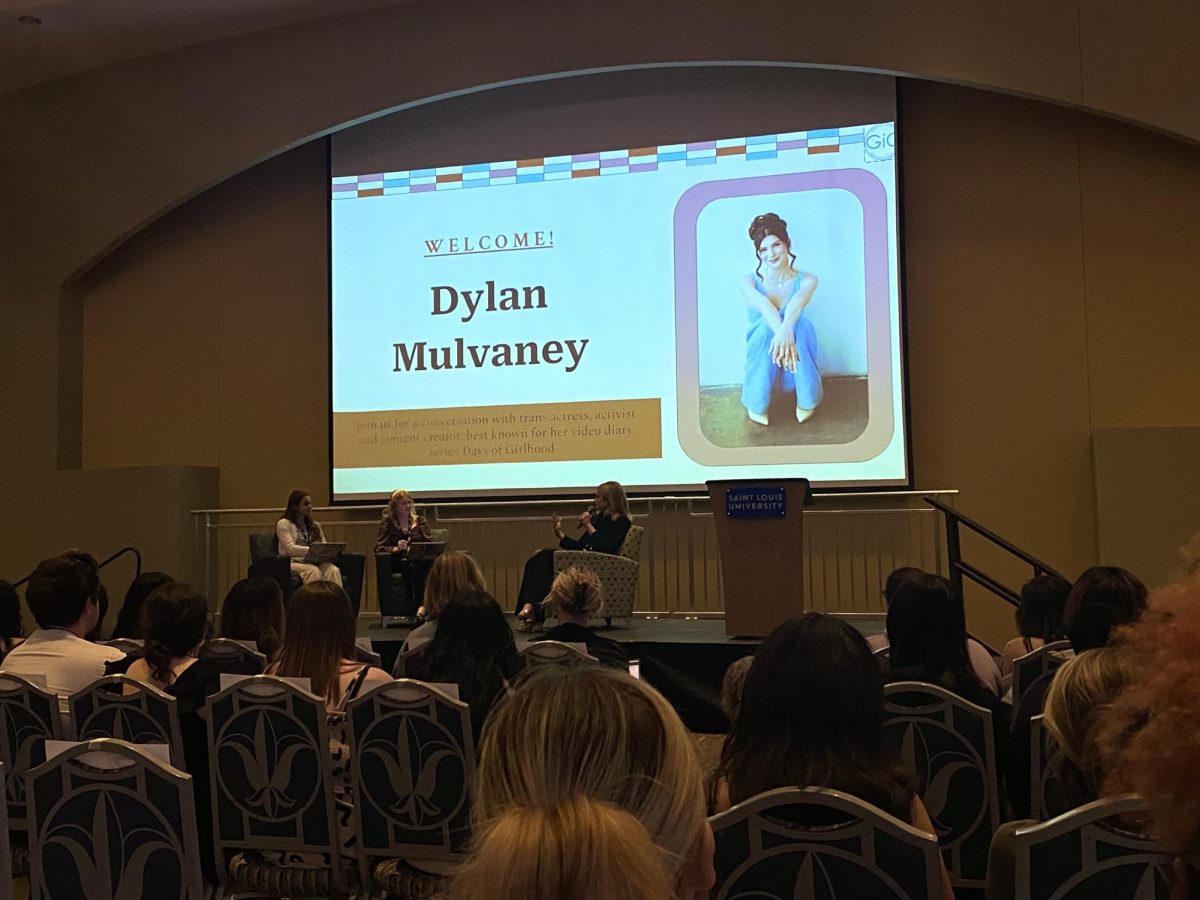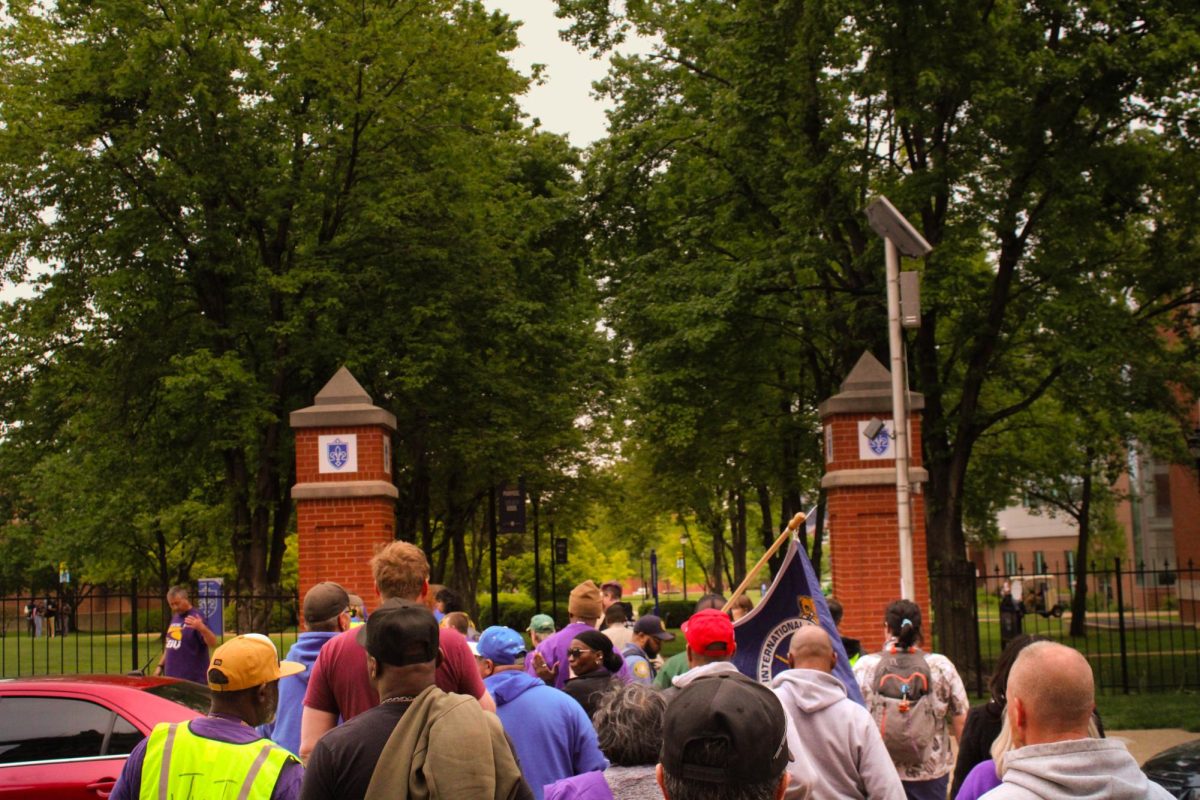As a scholar, Walter J. Ong, S.J., made a profound impact on the world with his work in communication studies, which bled into several other academic disciplines, among them English and the sciences.
On Friday, four Saint Louis University professors who knew Ong during his 36 years as a professor at SLU spoke about the impact that Ong had on their personal lives as a colleague, a teacher, a priest and a friend. This panel discussion took place as part of a conference, hosted by SLU's English department, which honored the legacy of Ong. The event drew scholars from around the country to SLU to talk about Ong's impact on the global intellectual community.
Moderating the discussion was communication professor Rob Anderson, Ph.D. Anderson opened the discussion by speaking not only of Ong's "legacy of caring and sensitivity to other people," but also his "legacy of ideas."
He told a story about one of the many graduate students who emulated Ong; this student in particular was touched that Ong, even with waning health, came to see her research presentation. The story illustrated "the sensitivity of Father Ong," but as Anderson said, Ong may have had another reason, aside from empathy, for attending the presentation.
"He might also just have been curious about her topic," Anderson said.
John Padberg, S.J., the director of the Institute of Jesuit Resources, was one of Ong's colleagues.
As a youth, Ong earned the highest distinction in Boy Scouts; in his optimism for the future, his constant curiosity and his service to others, Ong was "always an Eagle Scout," Padberg said.
Ong was a confessor in the St. Francis Xavier College Church for more than 30 years, which was one of the activites that he most enjoyed at SLU, and felt most passionate about, Padberg said. Ong loved the Jesuit community-he lived in Jesuit Hall throughout his tenure at SLU-and felt deeply connected to "The Spiritual Exercises" of St. Ignatius.
Padberg used a quote from poet Gerard Manly Hopkins to describe Ong and his insatiable curiosity: Ong saw the world as "news from God," Padberg said.
Thomas Zlatic was one of Ong's graduate students. Having Ong as a professor was "brushing with greatness," Zlatic said; everyone had some degree of awe and respect for him.
"When you hear terms like…corpuscular epistemology, how could you not think of Father Ong?" Zlatic asked a chortling crowd.
His tone turned from one of levity to one of deep sentimentality as he shared his interactions with Ong in the sunset of Ong's life.
Zlatic described Ong as a person of sincerity; every time he sent a letter to Ong or passed on an article that he thought Ong would find interesting, Ong would reply with a phone call. Ong "recognized the intellect at the surface of human relationships," Zlatic said.
Thomas M. Walsh, Ph.D., a professor of English at SLU, who put together the definitive bibliography of Ong's work, spoke about "Onglish," which he introduced as "a specification of English with [Ong's] own take upon it," Walsh said.
Ong was interested in English "as a meeting ground of process and structure," Walsh said.
While Ong's research bled into various different academic disciplines and couldn't be given one particular label, others were always trying to classify him: Ong was "constantly being misclassified," Walsh said. Walsh said that Ong referred to himself as a professor of English-but in his own way.
Walsh said that Ong perpetually searched for the answer to the question, "What is the self?" Ong thought that "understanding human language necessitated an examination of the sound, and its relation to cognition [within the self]," Walsh said.
In a more humorous vein, Walsh remembered the boyish delight that Ong took in mounting the "world's largest cornflake" on the wall of his office in cellophane.
Vincent Casaregola, Ph.D., a professor of English, said that it was a "humbling and happy moment" when he was hired to teach at SLU, because he knew that he had Ong as a colleague. Ong had a "spirit of youthful enthusiasm" and was "always a very supportive and joyful person with respect to learning," Casaregola said.
Casaregola's first daughter was baptized by Ong in the chapel in Jesuit Hall; after that, Ong developed a meaningful relationship with the young girl.
"He had time for the most profound ideas," but he knew that these complexities "took meaning in the simplest gestures and words of the youngest child," Casaregola said of Ong.
In the spirit of Ong's thought, Casaregola said that "what really matters are the human concerns of language…words are not signs but events…something to be shared by people."
Ong's call to service was fundamental to him; he was "an Eagle Scout in the truest sense of the word, all his life," Casaregola said.






